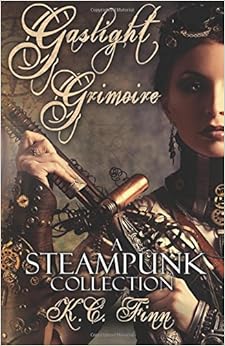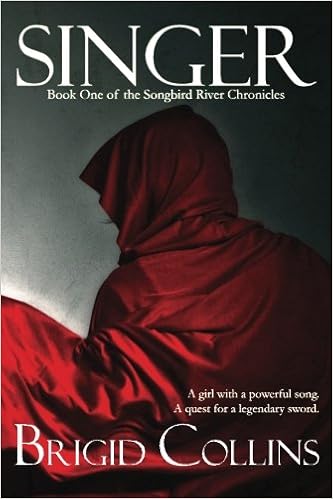Author: Jeffrey Ford
Genre: Horror, Supernatural
Pagecount: 281 (ebook)
Warnings: Death, Murder, Violence, Rape, Dismemberment, Domestic Violence, Dolls, Spooky shit, Kitchen Sink
Rating: 4/5
"A Natural History of Hell" is a collection of short stories that span a remarkable range in location, time period, genre and atmosphere. They all have a supernatural theme, but I was genuinely impressed and how wide and varied the flavor of stories spanned. The only consistency is the austere language. The prose was clearly written and easy to read, even when the events of a particular story were on the edge of what I could handle. This kept what could have been wildly divergent moods from giving me emotional whiplash (in other words, I liked it).
This lovely collection of stories are clearly the culmination of many skillful experiments into a multitude of literary traditions that were pleasurable to read with nary a dull moment.
Since I have very little that can be said about the entire collection together aside from how widespread it is, the meat of this review are short opinions on the individual tales.
The Blameless: A surprisingly sweet story of a married couple attending a coming of age ceremony for their neighbor's daughter, specifically her exorcism. An okay short, but interesting to me largely as an example of gendered emotional labor.
Word Doll: Creepy in the way only dolls can be, made of words or otherwise. Reminded me of the midwestern folk horror that the TV show Supernatural does so well. Perhaps my favorite story of the collection.
The Angel Seems: Some truly weird supernatural events, kidnappings, extremely creative deaths and a plethora of (presumed) good old fashioned rape. I have very mixed feelings about this story, because so many ladies get raped that it becomes mundane (that's gross as fuck), but the ending is by far the best ending any story can have. Mixed!
Mount Cherry Galore: This is a coming of age story with some more magical elements included than usual. I admit this one was nice but didn't stand out for me.
A Natural History of Autumn: A young yakuza meets a hostess and has a very trying adventure in the mountains. It was a nice surprise to see a local folk horror story from a completely different tradition. I think my only point of comparison for this was Kwaidan so I can't tell you how faithful it was to Japanese horror, but I definitely had fun reading it.
Blood Drive: By far the scariest story for me, since this year it hits a little too close to home. Think of this as the Handmaiden's Tale but for the NRA instead of evangelical christians.
A Terror: In April of 1862 Emily Dickinson wrote a letter to a friend in which she said "I had a terror since September...". Ford imagines what she experienced. I liked this story because it diverged in tone from the other stories; in deference to Dickinson it was more fantastical and lyrical, which was delightful.
Rocket Ship to Hell: One author relates the strange tale of his trip into space to two of his fellows in a dimly lit bar. This one is a call-back to golden age sci-fi, with all of it's bad science, shady old men and sexism. Hard pass for me.
A Fairy Enterprise: A Victorian entrepreneur hits on a new business venture, and it doesn't go at all to plan. This was a nice palette cleanser for me, a pleasing mix of English fairy tales and Charles Dickens.
The Last Triangle: A down on his luck drifter is welcomed into the life of an older woman with some very dangerous secrets. Another nice story, a little like the John Constantine comics in that all of the characters are both flawed and magical.
Spirits of Salt: A Tale of the Coral Heart: The tale of a man with a legendary sword and the badass women in his life. I wish I knew what literary tradition this story was from. I'm leaning towards far east, maybe India, but I couldn't say for sure. I liked the way the story was told, and the main characters were all super cool. I would love to read more like it!
The Thyme Fiend: After a young man discovers a body in a well, he can't stop seeing the ghost of Jimmy Tooth unless he drinks thyme tea. There were some very dreamlike aspects to this story and I couldn't help falling into them. I found it deeply engaging, would recommend.
The Prelate's Commission: A talented young artist is commissioned by the local prelate to paint a true picture of the devil. While I usually delight in religious iconography, this was one missed the mark. I got the impression it could have been fleshed out into a full length novel, since this version was a bit rushed.
Genre: Horror, Supernatural
Pagecount: 281 (ebook)
Warnings: Death, Murder, Violence, Rape, Dismemberment, Domestic Violence, Dolls, Spooky shit, Kitchen Sink
Rating: 4/5
"A Natural History of Hell" is a collection of short stories that span a remarkable range in location, time period, genre and atmosphere. They all have a supernatural theme, but I was genuinely impressed and how wide and varied the flavor of stories spanned. The only consistency is the austere language. The prose was clearly written and easy to read, even when the events of a particular story were on the edge of what I could handle. This kept what could have been wildly divergent moods from giving me emotional whiplash (in other words, I liked it).
This lovely collection of stories are clearly the culmination of many skillful experiments into a multitude of literary traditions that were pleasurable to read with nary a dull moment.
Since I have very little that can be said about the entire collection together aside from how widespread it is, the meat of this review are short opinions on the individual tales.
The Blameless: A surprisingly sweet story of a married couple attending a coming of age ceremony for their neighbor's daughter, specifically her exorcism. An okay short, but interesting to me largely as an example of gendered emotional labor.
Word Doll: Creepy in the way only dolls can be, made of words or otherwise. Reminded me of the midwestern folk horror that the TV show Supernatural does so well. Perhaps my favorite story of the collection.
The Angel Seems: Some truly weird supernatural events, kidnappings, extremely creative deaths and a plethora of (presumed) good old fashioned rape. I have very mixed feelings about this story, because so many ladies get raped that it becomes mundane (that's gross as fuck), but the ending is by far the best ending any story can have. Mixed!
Mount Cherry Galore: This is a coming of age story with some more magical elements included than usual. I admit this one was nice but didn't stand out for me.
A Natural History of Autumn: A young yakuza meets a hostess and has a very trying adventure in the mountains. It was a nice surprise to see a local folk horror story from a completely different tradition. I think my only point of comparison for this was Kwaidan so I can't tell you how faithful it was to Japanese horror, but I definitely had fun reading it.
Blood Drive: By far the scariest story for me, since this year it hits a little too close to home. Think of this as the Handmaiden's Tale but for the NRA instead of evangelical christians.
A Terror: In April of 1862 Emily Dickinson wrote a letter to a friend in which she said "I had a terror since September...". Ford imagines what she experienced. I liked this story because it diverged in tone from the other stories; in deference to Dickinson it was more fantastical and lyrical, which was delightful.
Rocket Ship to Hell: One author relates the strange tale of his trip into space to two of his fellows in a dimly lit bar. This one is a call-back to golden age sci-fi, with all of it's bad science, shady old men and sexism. Hard pass for me.
A Fairy Enterprise: A Victorian entrepreneur hits on a new business venture, and it doesn't go at all to plan. This was a nice palette cleanser for me, a pleasing mix of English fairy tales and Charles Dickens.
The Last Triangle: A down on his luck drifter is welcomed into the life of an older woman with some very dangerous secrets. Another nice story, a little like the John Constantine comics in that all of the characters are both flawed and magical.
Spirits of Salt: A Tale of the Coral Heart: The tale of a man with a legendary sword and the badass women in his life. I wish I knew what literary tradition this story was from. I'm leaning towards far east, maybe India, but I couldn't say for sure. I liked the way the story was told, and the main characters were all super cool. I would love to read more like it!
The Thyme Fiend: After a young man discovers a body in a well, he can't stop seeing the ghost of Jimmy Tooth unless he drinks thyme tea. There were some very dreamlike aspects to this story and I couldn't help falling into them. I found it deeply engaging, would recommend.
The Prelate's Commission: A talented young artist is commissioned by the local prelate to paint a true picture of the devil. While I usually delight in religious iconography, this was one missed the mark. I got the impression it could have been fleshed out into a full length novel, since this version was a bit rushed.



